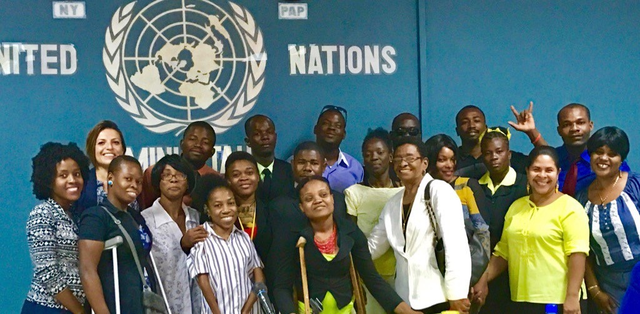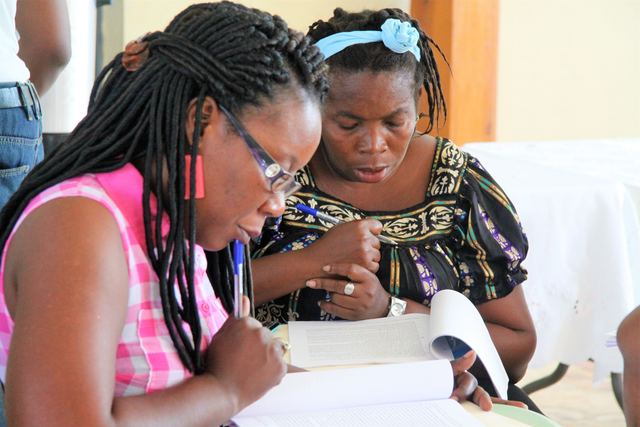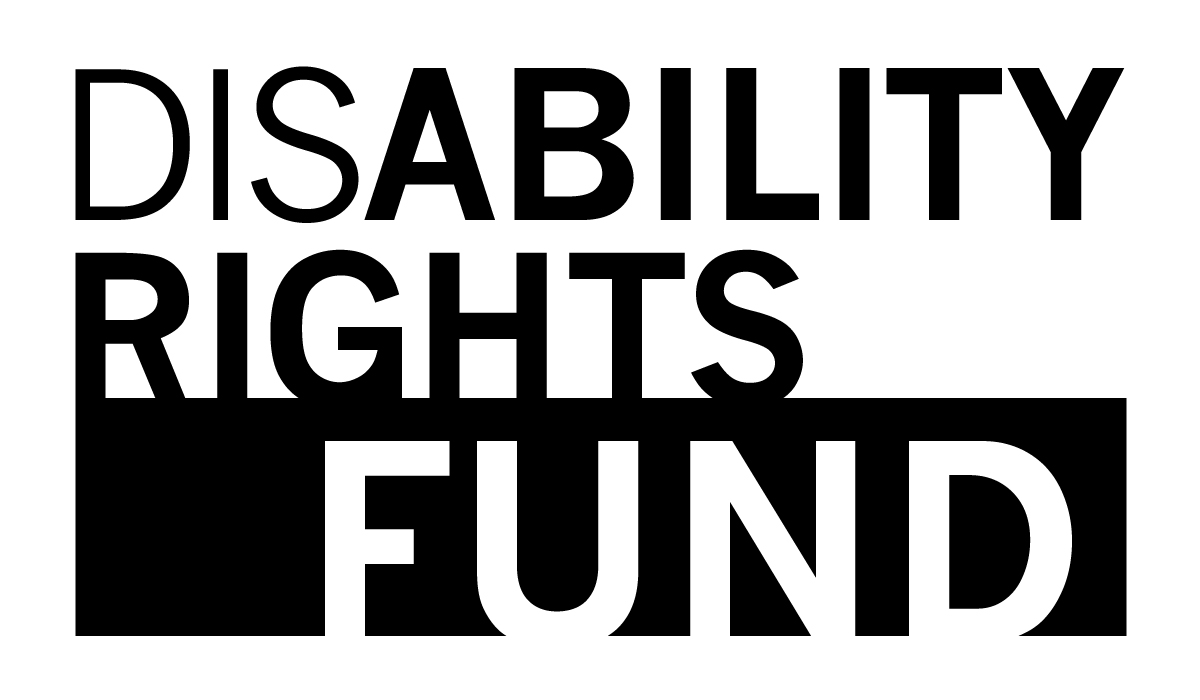
Haiti ratified the Convention on the Rights of Persons with Disabilities (CRPD) in 2009 and in 2017, is undergoing its first review by the CRPD Committee on how rights are being implemented. The CRPD Committee is the body of 18 independent experts which monitors implementation of the Convention.
On March 16, 2017, Haitian Disabled Persons’ Organizations (DPOs) voiced their concerns and the challenges they face in a video conference dialogue with the Committee. This was an opportunity for Disabled Persons Organizations, including those representing marginalized groups, to voice their concerns on policies and programs for persons with disabilities in Haiti.

Photo Credit: Jo-Ann Garnier
This dialogue followed the submission of an Alternative Report, which was produced in consultation with over 50 DPOs, as well as other civil society organizations, in Haiti. The purpose of the Alternative Report, submitted on February 27, 2017, was to inform the Committee about how the CRPD has been implemented by the Haitian government from the perspective of persons with disabilities.
The dialogue provided the CRPD Committee with vital information for the preparation of the “List of Issues.” The List of Issues is used to gather additional information on key issues from the State Party during the Committee’s review of Haiti.
The List of Issues included queries about whether Haiti has set up the needed mechanisms and budget to implement and monitor the rights of persons with disabilities. It queried how Haiti is ensuring that people with disabilities, in particular women and girls with disabilities, are protected from exploitation, violence and abuse and have access to justice. It also included queries around supported decision-making and safeguards to protect persons with disabilities, particularly persons with psychosocial and intellectual disabilities, who are restricted in their legal capacity.
Key to the disability movement in Haiti are questions about how the government is consulting representative organizations of persons with disabilities in the design of policies and strategies.
These questions must be responded to by the State Party, before the review session with the Committee in August 2017.
DPO involvement in the reporting process has been supported by grants from the Disability Rights Fund. Technical assistance to the Haitian disability community during this process included training from Alberto Vasquez (DRF Global Advisory Panel member), on alternative reporting and assistance with preparation for the dialogue with the Committee from the International Disability Alliance. The UN Human Rights Office in Haiti supported the video conference access between Port-au-Prince and Geneva.
Disability Rights Fund’s Jo-Ann Garnier, who provided technical support to DPOs, reflected on the process:
We supported DPOs to bring together a diverse group of persons with disabilities from across Haiti and they spoke as one strong voice. The movement’s strength comes from the diversity of perspectives and their collective hope for equal rights and opportunities for all persons with disabilities.
A Disability Rights Advocacy Fund grant to a National Coalition led by Reseau Association National pour l’Integration des Personnes Handicapees (RANIPH SUD) is promoting full domestication and implementation of the CRPD and the Law on the Integration of Persons with Disabilities in Haiti through advocacy on issues identified through the review.
The participation of persons with disabilities and their representative organizations is central to the CRPD. The voices and experiences of persons with disabilities as part of the process is critical as it recognizes that persons with disabilities are the experts on their own situation. DRF/DRAF support has ensured that this process is including a cross-section of the disability community and is inclusive of marginalized persons with disabilities.
Resource
